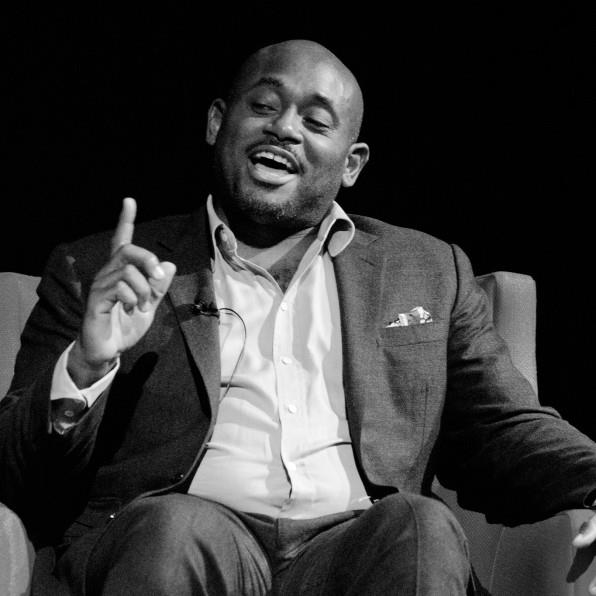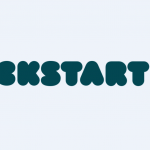Record Labels Are Rebounding, But This Startup Could Shake Their Dominance
For over a decade, it’s been tempting to write off record labels for dead. Maybe it’s about taking revenge for the schoolyard bully reputation they earned by overpricing CDs for years and then suing consumers when file-sharing upended their business model. Or perhaps the internet-driven disruption of the last 15 years makes it easy to boldly declare that labels are, as Techcrunch puts it, “obsolete.” Or maybe we just like watching giants fall.
But record labels aren’t dying, at least not anytime soon. In fact, for the first time in years, their quarterly revenues are growing (thanks to the explosion of music subscriptions). What is happening is that labels’ resources and influence have dwindled dramatically since the music industry’s pre-Napster heyday. And increasingly, they’re being forced to share their longtime role as the chief conduit between artists and audiences with technology companies–from giants like Apple, Google, and Spotify to a parade of startups promising to empower artists in new ways.
UnitedMasters is the latest company to leap into this space between artists and listeners, promising to reinvent the business model of music and hand over more power to musicians. The startup, which recently landed a $70 million investment from the likes of Alphabet and Andreesen Horowitz, pitches itself in David taking on Goliath terms, an industry-disrupting story that tech industry utopians crave: “Your future has no labels,” proclaims the marketing copy on its website.
UnitedMasters probably won’t replace record labels, but it has a decent shot at helping tech further increase its role–not to mention power–in the music industry. The service offers artists a combination of distribution across digital music services and detailed analytics about their listeners–including the ability to identify so-called “super fans” and target them with special promotions and opportunities to buy merch and concert tickets. Essentially, it’s a music distribution tool in the vein of TuneCore and CDBaby merged with the kind of data-powered fan engagement that Spotify recently started digging into.
UnitedMasters, which was founded by Interscope Records vet Steve Stoute, then takes things to the next level–and guns more directly for the labels–by letting artists keep the rights to their master recordings and by nurturing up-and-coming musicians on their platform, offering them access to a creative team that can help promote and market their music. This artist incubation and investment is the most uniquely label-esque thing UnitedMasters is setting out to do (aside from distributing the music itself, but DIY music distribution services have existed for years now).

UnitedMasters is the latest startup to take a crack at rewiring some aspect of the music business. Companies like Stem and Audiam tackle the distribution of royalty payments to artists with new, data-powered innovations. So does Kobalt (which, like UnitedMasters, has received an investment from Google/Alphabet), while also offering music publishing, data analytics, and other label-like services for artists. Meanwhile, A&R (or artists and repertoire, industry lingo for spotting and developing new talent)–one of the traditional functions of record labels hardest hit by shrinking budgets–is being tackled with technology by companies like ReverbNation, Music XRay, and Tradiio.
But perhaps the most direct and obvious challenge to the role of labels comes from streaming services. Not only are services like Spotify, Apple Music, and Amazon Prime Music taking over the distribution side of music as physical album sales keep declining, but they’re inching into other aspects of the business and finding new ways to buoy artists’s careers; As Spotify scales beyond 100 million listeners, its playlists are becoming promotional powerhouses that could one day rival the reach of terrestrial radio. Spotify’s huge audience and data science prowess also make the company well-positioned to dabble in more artist development, should it choose to. In the meantime, it’s ramping up investment in data-powered, artist-facing tools that are already helping musicians and their managers do things like plan tours and sell more merch.
While no such plans have been publicly announced, it’s not hard to envision a future in which Spotify and other streamers start signing direct deals with artists, bypassing traditional labels entirely. Mega-successful artists like Chance the Rapper (who has no label) and Frank Ocean (whose last album dropped exclusively on Apple Music, just after his contract with Universal was fulfilled) have already offered a sneak peek at the blueprint artists would need to skip the label deal and use the explosive growth of streaming music to their advantage.
In most cases, the streaming services aren’t explicitly replacing the traditional functions of music labels, but rather forging new ones (often using heretofore unimaginable advantages stemming from data and tech-enabled innovations), but in many cases, they’re inching toward some very label-esque territory. At the same time, managers are taking on a more hands-on role in the development of artists’ careers–management agencies like Paradigm and Red Light are prime examples–further bolstering the potential for their independence from the label system.
Still, this slow, multi-angled encroachment on the labels’ responsibilities and power doesn’t mean they’re doomed. After all, it’s the labels who typically own the master rights to recordings–that is, the actual music Spotify and others need to make themselves worth subscribing to. Labels also still offer plenty of advantages to the artists they sign; cash advances for recording, ample resources for marketing and promotion (including press outreach), and the labels’ various and deep-rooted relationships and clout across the music industry still carry a great deal of value for the many of artists who sign contracts with labels–even if those contracts are less necessary overall than they once were.
In the future, record labels may well be a shadow of what they are now (let alone what they were 15 years ago, an era to which there’s likely no turning back). But don’t start writing their obituaries just yet.
Fast Company , Read Full Story
(32)














